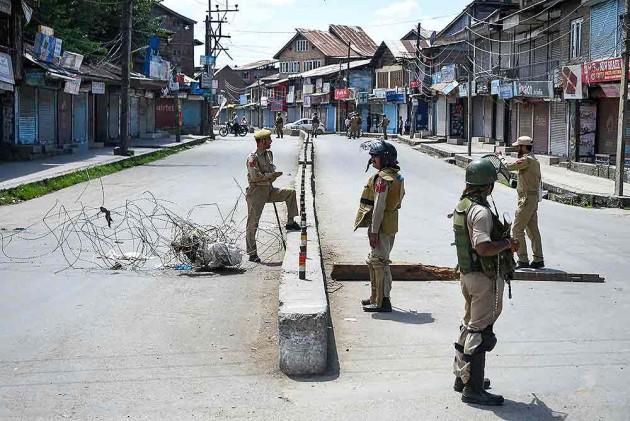Kishtwar: Silence Enforced, Anger Simmers

Image Courtesy: Outlook India
The day Union Home Minister Amit Shah announced abrogation of Article 370 in Rajya Sabha, 28 years old Abdul Qayoom was arrested from Kishtwar for a Facebook post. According to Qayoom, he had shared a video expressing his resentment against the Centre’s decision to strip the state of its autonomy. For next 18 days, he along with his father and several others, remained behind the bars. He sees this arrest as an attempt at silencing them.
On August 5, the Modi-led Bharatiya Janata Party government stripped the special status of Jammu and Kashmir and disintegrated the state into two union territories: Jammu & Kashmir and Ladakh. For the first time in the history of India, a state was being reduced to union territories. Before announcement of this decision, there was a heavy deployment of the paramilitary forces across Jammu and Kashmir. The announcement resulted in sporadic protests in Kashmir and in different areas of Chenab Valley. To curb any form of protest, locals were reportedly arrested and kept behind the bars.
“When you impose silence, its results in extremism. Then nobody should question why youths are picking up guns. You are forcing them to do so. At least give us some space to vent out our anger. We have been stripped naked and we are not even allowed to cry over it,” said a middle school teacher from Kishtwar. The anger among the locals was evident even when they refused to speak about it.
“It is like inviting trouble. We are not allowed to express, not allowed to speak, not even move as per our wish. Nobody wants to get arrested and cause their family any trouble,” said a woman in her 70s.
But the locals have found different ways to express their anger. Every Friday, there is a civilian shutdown in Kishtwar, which is followed by Doda and Baderwah. The shops are closed, there is no movement on the roads. Locals have complained that the army personnel barge into their house and forces them to open the shops.
“The armed forces threaten us by showing the rifle and saying that we will be put behind the bars if we don’t comply with them. We are not even allowed to pray and you know, Friday prayers are important for us,” a shopkeeper told NewsClick.
Kishtwar suffered communication blockade for more than a month, when even landlines were not working. “My relative died and we got to know after five days. Landlines and mobile phones were not working. People restricted themselves to their houses fearing heavy crackdown by the forces. There was a sense of fear,” said a local wishing anonymity.
“We are caged in our own state. There is no internet. Yes, restoration of mobile phones and landlines has helped us talk to our relatives and children, but there is stifling uncertainty. We don’t know what will happen next. The iota of faith that we had in the Indian state, we have lost that too,” said a local while speaking to NewsClick.
Locals say that normalcy, portrayed by a few media organisations and the central government, does not exist. “If there is normalcy, they should restore the internet. If there is normalcy, they should lift communication blockade in Kashmir. Tell them to set us free, so that everyone shall witness the normalcy,” said an irate local.
Note: Locals wished to be anonymous fearing repercussions.
Also read: Illegal Construction in Green Belt Areas of Kashmir?
Get the latest reports & analysis with people's perspective on Protests, movements & deep analytical videos, discussions of the current affairs in your Telegram app. Subscribe to NewsClick's Telegram channel & get Real-Time updates on stories, as they get published on our website.
























